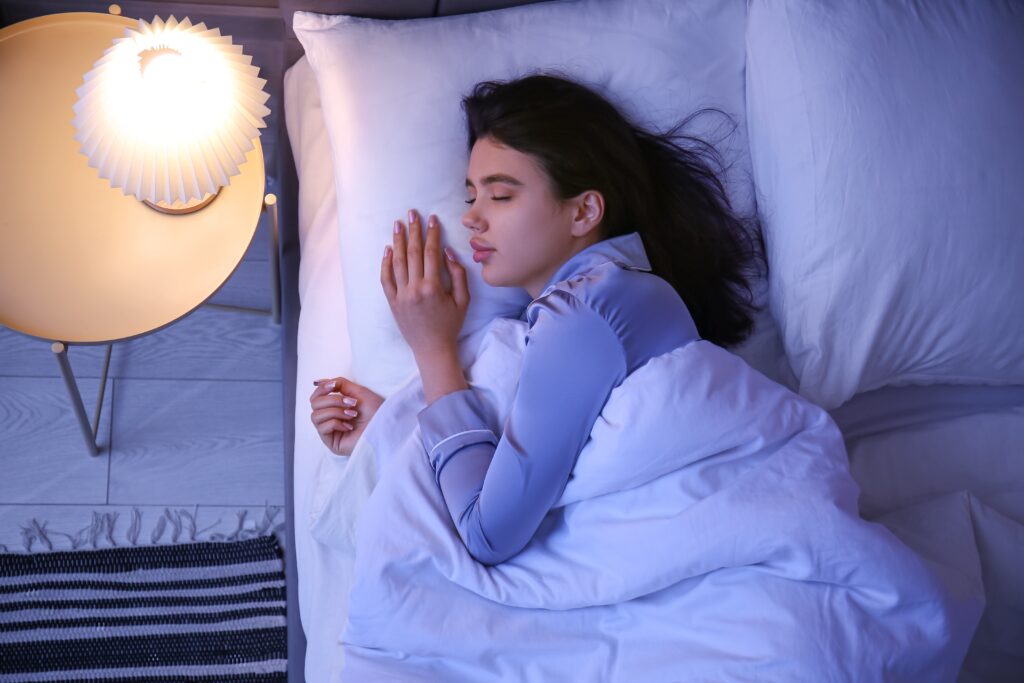Millions of people wake up every morning feeling exhausted. They hear birds chirping, see sunlight through their windows, but still feel drained. If this sounds familiar, you are not alone. In the U.S. alone, between 50 and 70 million people suffer from poor sleep. Experts even call it a global sleep crisis. However, small changes in habits can lead to better sleep. Below are seven proven ways to improve rest and feel more refreshed.
The Science of Biphasic Sleep
Waking up in the middle of the night often causes stress. Many believe continuous sleep is necessary, but history tells a different story. In the past, people often slept in two shifts. They would sleep for a few hours, wake up to do simple activities, and then return to bed.
Roger Ekirch, a historian at Virginia Tech, found that biphasic sleep was common before the Industrial Revolution. Knowing this can help reduce anxiety about waking up at night. Instead of worrying, people can relax and accept it as natural.
How Seasons Affect Sleep Patterns
As spring arrives, waking up feels easier. In winter, longer nights make people sleep more. A study in Germany found that people get more deep sleep in December than in June.
REM sleep is important for brain function, while deep sleep helps with muscle recovery and memory. Adjusting sleep schedules based on the seasons can improve energy and overall well-being.
The Power of Short Naps
Napping is a daily habit in many cultures, and science supports its benefits. Research shows that short naps can slow brain aging and improve mental sharpness. A study from 2023 found that regular naps help keep the brain younger by three to six years.
The best naps are around 15 minutes long. These can boost mental function for several hours. However, longer naps may cause grogginess, and late-afternoon naps can disrupt nighttime sleep.
The Danger of Microsleeps
Some naps are dangerous. Microsleeps happen when people doze off for a few seconds without realizing it. This is especially risky when driving.
Researchers studied dashcam footage from 52 Japanese truck drivers. They found that three-fourths of them had microsleeps right before accidents. People who sleep less than six hours a night are more likely to experience these episodes. If you notice frequent microsleeps, it may be a sign of sleep deprivation.
Sleeping Together: A Lost Tradition
Sleeping alone is common today, but it was not always this way. In the past, families, friends, and even strangers often shared beds. Before the 19th century, most people did not sleep alone.
Sleeping partners provided warmth and comfort. However, bed-sharing also came with downsides, like bedbugs and bad breath. Modern habits have changed, but communal sleeping was once the norm.
Sleep Quality Matters More Than Duration
People often hear that they need seven to nine hours of sleep. But the quality of sleep is just as important. Poor sleep can leave people feeling tired, even after a full night’s rest.
During deep sleep, the brain clears out toxins. This process works best when sleep follows a natural rhythm. Aligning bedtime with the body’s internal clock can improve sleep quality.
The Comfort of Modern Beds
Today’s mattresses are soft and comfortable. But in the past, sleeping arrangements were much rougher.
In medieval times, many slept in box beds with little airflow. Later, people used mattresses stuffed with straw or leaves, which attracted pests. The Victorians even had odd sleeping options for the homeless, like coffin-beds or hanging ropes for brief naps. Compared to these, modern beds feel like a luxury.
Understanding sleep history, adjusting rest to the seasons, and focusing on sleep quality can help people rest better. Simple steps like strategic napping, avoiding microsleeps, and appreciating a comfortable bed can improve overall well-being. While no method makes waking up on a Monday morning enjoyable, better sleep habits can lead to a healthier life.


